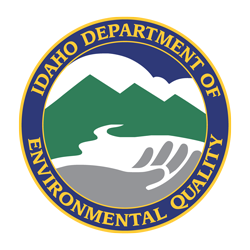December 4, 2023
Contact: MaryAnna Peavey, Grants and Loans Bureau Chief, MaryAnna.Peavey@deq.idaho.gov
BOISE — The Idaho Department of Environmental Quality (DEQ) today announced the award of $331,741 to nine drinking water and wastewater systems to help the facilities evaluate system deficiencies and determine necessary upgrades. The funding was made available under Governor Brad Little’s “Leading Idaho” plan.
“Families, farmers, ranchers, and all Idaho residents rely on clean, efficient water and wastewater systems. These systems are not only a crucial part of our way of life, but our economy as well. Funding for these projects from my Leading Idaho plan aims to ensure that Idaho residents – especially those in our rural communities – can depend on our water and wastewater infrastructure for generations to come,” said Idaho Governor Brad Little.
City of Buhl – The city of Buhl in Twin Falls County was awarded $83,000 to prepare a drinking water planning study and environmental review to evaluate the current drinking water system and identify needed improvements. The total project cost is $166,000, and the remaining $83,000 will be funded by the city.
City of Filer – The city of Filer in Twin Falls County was awarded $58,365 to prepare a wastewater planning study and environmental review to evaluate the current wastewater system and identify needed improvements. The total project cost is $116,730, and the remaining $58,365 will be funded by the city.
City of Franklin – The city of Franklin in Franklin County was awarded $30,000 to prepare a wastewater planning study and environmental review to evaluate the current wastewater system and identify needed improvements. The total project is $60,000 and the remaining $30,000 will be funded by the city.
City of Iona – The city of Iona in Bonneville County was awarded $30,000 to prepare a drinking water planning study and environmental review to evaluate the current drinking water system and identify needed improvements. The total project cost is $60,000, and the remaining $30,000 will be funded by the city.
King Hill Domestic Water and Sewer Association – King Hill Domestic Water and Sewer Association in Elmore County was awarded $22,776 to prepare a drinking water planning study and environmental review to evaluate the current drinking water system and identify needed improvements. The total project cost is $45,552, and the remaining $22,776 will be funded by King Hill Domestic Water and Sewer Association.
Meadow Creek Property Owners Association – Meadow Creek Property Owners Association in Adams County was awarded $30,000 to prepare a drinking water planning study and environmental review to evaluate the current drinking water system and identify needed improvements. The total project cost is $60,000, and the remaining $30,000 will be funded by Meadow Creek Property Owners Association.
City of Spirit Lake – The city of Spirit Lake in Kootenai County was awarded $37,500 to prepare a wastewater planning study and environmental review to evaluate the current wastewater system and identify needed improvements. The total project cost is $75,000, and the remaining $37,500 will be funded by the city.
Trow Creek Water Association – Trow Creek Water Association in Boundary County was awarded $17,500 to prepare a drinking water planning study and environmental review to evaluate the current drinking water system and identify needed improvements. The total project cost is $35,000, and the remaining $17,500 will be funded by Trow Creek Water Association.
Woodland Shores Water and Sewer Association – Woodland Shores Water and Sewer Association in Kootenai County was awarded $22,600 to prepare a drinking water planning study and environmental review to evaluate the current drinking water system and identify needed improvements. The total project cost is $45,200, and the remaining $22,600 will be funded by Woodland Shores Water and Sewer Association.
Background
DEQ’s Planning Grant Program provides assistance to eligible wastewater and drinking water systems. These grants are used to develop engineering reports identifying the most cost-effective, environmentally sound method of upgrading a system to achieve and maintain compliance with state and federal standards. Grants cover up to 50% of eligible planning costs, with the remaining cost is the grant recipient’s responsibility.
For more information about DEQ’s Planning Grant Program and to learn more about this year’s grant recipients, go to DEQ’s Facility Planning Grants page.

